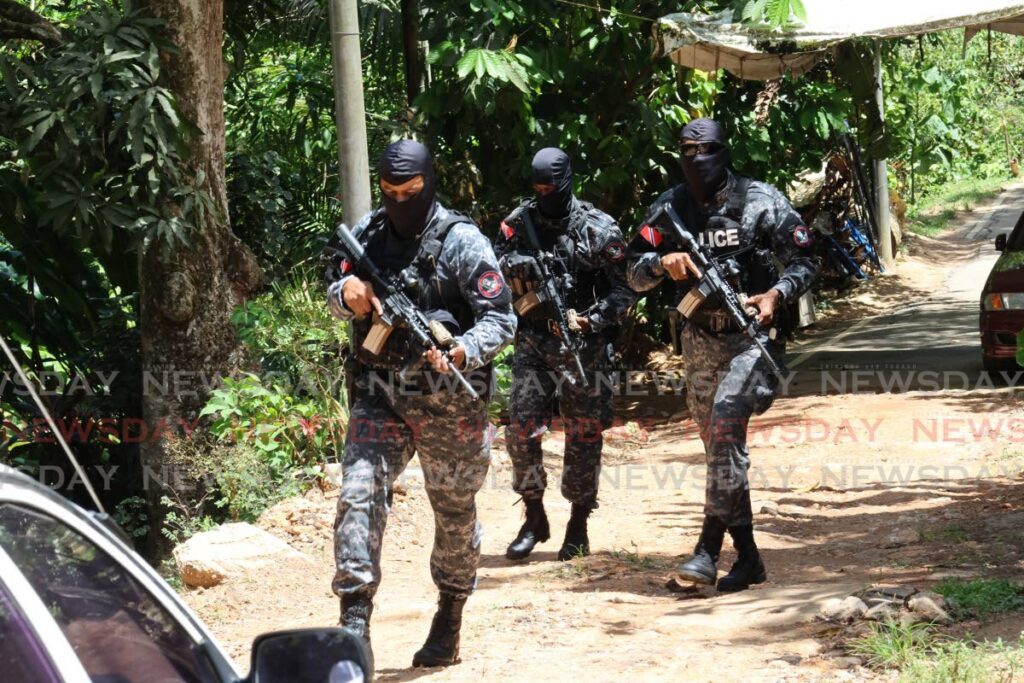CoP: Police use of deadly force guided by laws, training

COMMISSIONER of Police (CoP) Erla Harewood-Christopher says police must only use deadly force “when necessary, legal and appropriate.”
She said officers are guided by a use-of-force continuum, which outlines various stages of response, starting with communication and several other measures before the use of deadly force.
“We are reminded at all times that in the exercise of our powers, we must respect the rule of law and the rights and privileges of all citizens, at all times. We are held accountable for our actions at all times,” said Harewood-Christopher in a statement on May 28.
Her statement came the day after United National Congress (UNC) political leader Kamla Persad-Bissessar sent a strong message to police at a political meeting on May 27.
Her statement also follows at least three recent incidents in which six people were killed by police, including four alleged members of the Resistance gang, who were shot dead in the hills of Upper St Michael Road, off St John's Road, St Augustine on May 23.
“Tonight, I tell all TTPS officers – if criminals point a gun at you, shoot at you or attack you, return fire with full force, defend yourselves,” Persad-Bissessar said.
“Don’t be hesitant! Being hesitant can cost you your life. I’m in full support of our police officers standing their ground against violent criminals.” Harewood-Christopher clarified the policies guiding police and their allowance of discretion.
“We are granted wide discretionary powers. However, in the exercise of those powers, we are guided by laws and policies,” she said, citing the Police Service Act 2006, the Criminal Law Act, Section 4(1), and the Constitution as examples.
“The Criminal Law Act, Section 4(1), speaks of ‘the use of force as is reasonable in the circumstances in the prevention of a crime, or in effecting or assisting in the arrest of offenders or persons unlawfully at large.’
“In the performance of our duties, we are guided by a ‘Use of Force Policy’ which clearly states that ‘A police officer must seek to protect the safety and security of himself/ and others in the performance of his official duty," she wrote.
“(While) we understand that an officer’s decision to use force is sometimes made under ‘difficult, unpredictable and unique circumstances’ when such force is used, it must be necessary, legal and appropriate. If an officer acts outside of this, he would be held accountable.”
Harewood-Christopher said the service continues to train officers under the force policy and highlighted a continuum, outlining the levels of force to be used in response to the degree of resistance.
“The continuum goes from mere presence; communication; escort technique; mechanical control; chemical irritants; impact weapon; deadly force,” she said.
She said officers are also trained to use less lethal or “intermediate weapons” such as the Taser and pepper spray, (so they) can do their jobs effectively.
“We see the type of weapons that are in the hands of those who are bent on disrupting the lives of our law-abiding citizens. We will (remain) focused in our efforts to ensure that we provide a safe and secure environment for all.”
Harewood-Christopher said the police had "a clear mandate to preserve the peace, detect crime and other infractions of the law.
“These are just a few of the roles and responsibilities performed by police officers on a daily basis.’
“How we perform these duties will determine how we are perceived by the public and whether we are able to garner the trust and confidence that is ‘much needed to discharge our responsibilities.”

Comments
"CoP: Police use of deadly force guided by laws, training"